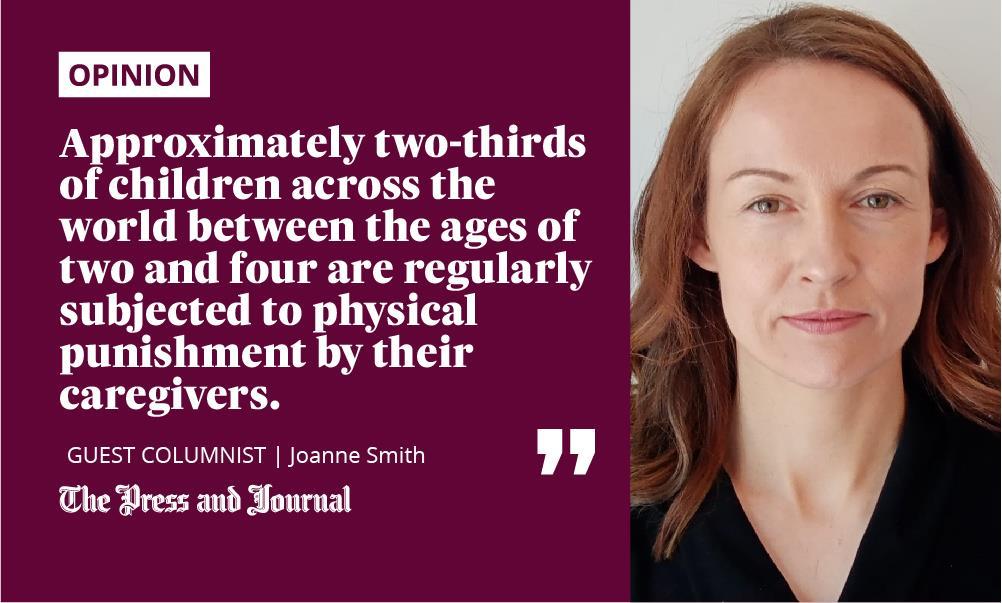A year ago on Sunday, Scotland brought in a law, which made it clear that physical violence against children would no longer be tolerated in this country, in the same way that it’s not for adults.
The Children (Equal Protection from Assault) (Scotland) Act removed the outdated criminal defence of “reasonable chastisement” from Scots law, so that hitting a child could never be legally justified.
Parenting can be extremely difficult. The pandemic has led to even more stress for many families, and we know adversity has a huge impact on people’s mental health and family relationships. But research shows that physical punishment isn’t an effective way to discipline children and, worse, carries with it a risk of long-term harm.

Research published this year by UCL revealed that physical punishment increases behavioural problems. And, worryingly, the study found that approximately two-thirds of children across the world between the ages of two and four were regularly subjected to physical punishment by their caregivers.
However, we do know that, in Scotland and many other countries, the use of physical punishment has been declining and is becoming less acceptable. Bringing in legislation was a crucial and common-sense move in helping to improve family relationships and wider society. Still, legislation alone cannot bring about this change.
The Scottish Government must provide early years support
Families need support to help them build positive parent-child relationships from a very young age. That is why we are calling on the Scottish Government to ensure that a substantial part of the £500 million funding for holistic family support services is spent on universal early years help.
Providing early support to families can help build positive relationships. Developing these strong bonds and positive parenting techniques when a child is young can prevent harm and, in turn, change life trajectories.
Positive parenting approaches, which foster warmth and are supportive, are better at helping children understand the difference between right and wrong, while making life easier for both the parent and the child.
The NSPCC and other organisations provide a range of resources on positive parenting techniques and setting clear and consistent boundaries in a caring and responsible way. The NSPCC website includes tips on interacting with babies, dealing with tantrums and parenting while working at home.
Parents and carers can contact the NSPCC helpline on 0808 800 5000 or at help@nspcc.org.uk for advice and support.
Joanne Smith is Policy and Public Affairs Manager for NSPCC Scotland

